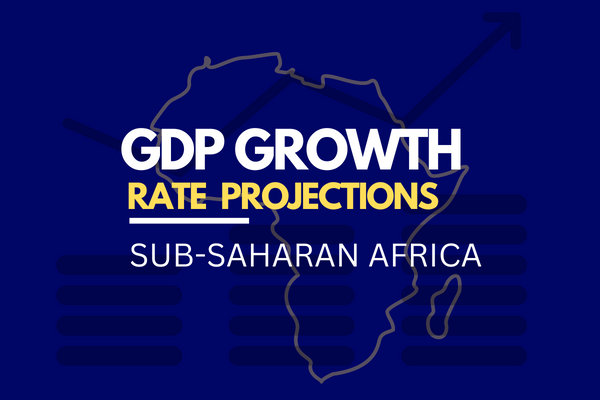The International Monetary Fund has projected that 26 Sub-Saharan African Countries, including Niger, South Sudan and Democratic Republic of Congo, will end 2022 with GDP growth rates higher than Ghana.
In their reviewed World Economic Outlook, the IMF forecast Ghana’s Gross Domestic Product (GDP) growth rate to slow down from 5.36% in 2021 to 3.59% by the end of the year, with a further decline to 2.84% in 2023.
According to the Fund, Seychelles will experience the highest economic expansion of 10.90% while Malawi is projected to end the year with the lowest growth rate of 0.94%.
Ghana's economy is experiencing some turbulence with consumer and producer inflation hitting record levels of 37.2% and 45.6% respectively. The Cedi continues to experience exchange rate wear and tear as $1.00 trades for more than GHS14.00.
Data from Bank of Ghana also indicate that the country's international reserves have dropped from $9.9 billion at the beginning of the year to $6.6 billion as of September 2022 translating into less than three months of import cover.
According to the IMF, the widening fiscal needs, and limited finance, has compelled few sub-Saharan African countries to tap their central banks in 2020 to help fund their crisis spending (Democratic Republic of the Congo, Ghana, Mauritius, Nigeria, South Sudan, Uganda).
"If the pandemic persists, some may have little choice but to look to this source of funding once again. Direct central bank lending to the government may jeopardize the former’s long-term effectiveness and undermine its commitment to contain inflation, with potential longer-term costs for the most vulnerable segments of the population. But in extraordinary circumstances, it may simply be impossible to obtain enough financing from any other source. Countries should use such financing only as a last resort, and if used, it should be on market terms, time-limited, and with an explicit repayment plan over the medium term. Repeated monetization would de-anchor inflation expectations and add to pressures on the currency" the IMF stressed.
Ghana is currently engaging the IMF for a bailout worth $3 billion with debt sustainability and restructuring being key determinants to getting the Fund's greenlight to kick start a programme.
Latest Stories
-
Bawumia opens commanding lead in NPP race with 52% support – Global Info Analytics poll
1 hour -
GRA surprised by NIA’s public attack, calls for dialogue
1 hour -
Don’t settle this in the media – GRA boss to NIA over debt row
2 hours -
Clearing goods at the ports not affected by Ghana Card dispute – GRA Boss
2 hours -
Design & Technology Institute graduates 600 artisans in precision quality training
2 hours -
Trump administration is reviewing all 55 million foreigners with US visas in growing crackdown
3 hours -
Shops, streets to close on Sept. 18 in Ashanti region as Asantehemaa’s is laid to rest
3 hours -
Effective VAT rate to be reduced to 20 percent in 2026 Budget
3 hours -
Afram Publications launches inclusive education book ‘Suspects in the School’
3 hours -
EOCO took me through the rightful processes – Shatta Wale expresses gratitude after release
4 hours -
AASU joins calls for peace and unity World Youth Conference in Beijing
4 hours -
Fellow Ghanaians – Roads to Nowhere, Dust to Breathe
4 hours -
GRNMA demands swift justice in Ridge Hospital attack, reaffirms support for nurses and midwives
4 hours -
The Star of Ghana’s 9th Parliament: Osahen Alexander Kwamena Afenyo-Markin
4 hours -
Employment Minister to meet Labour Commission over Ridge Hospital assault
4 hours

